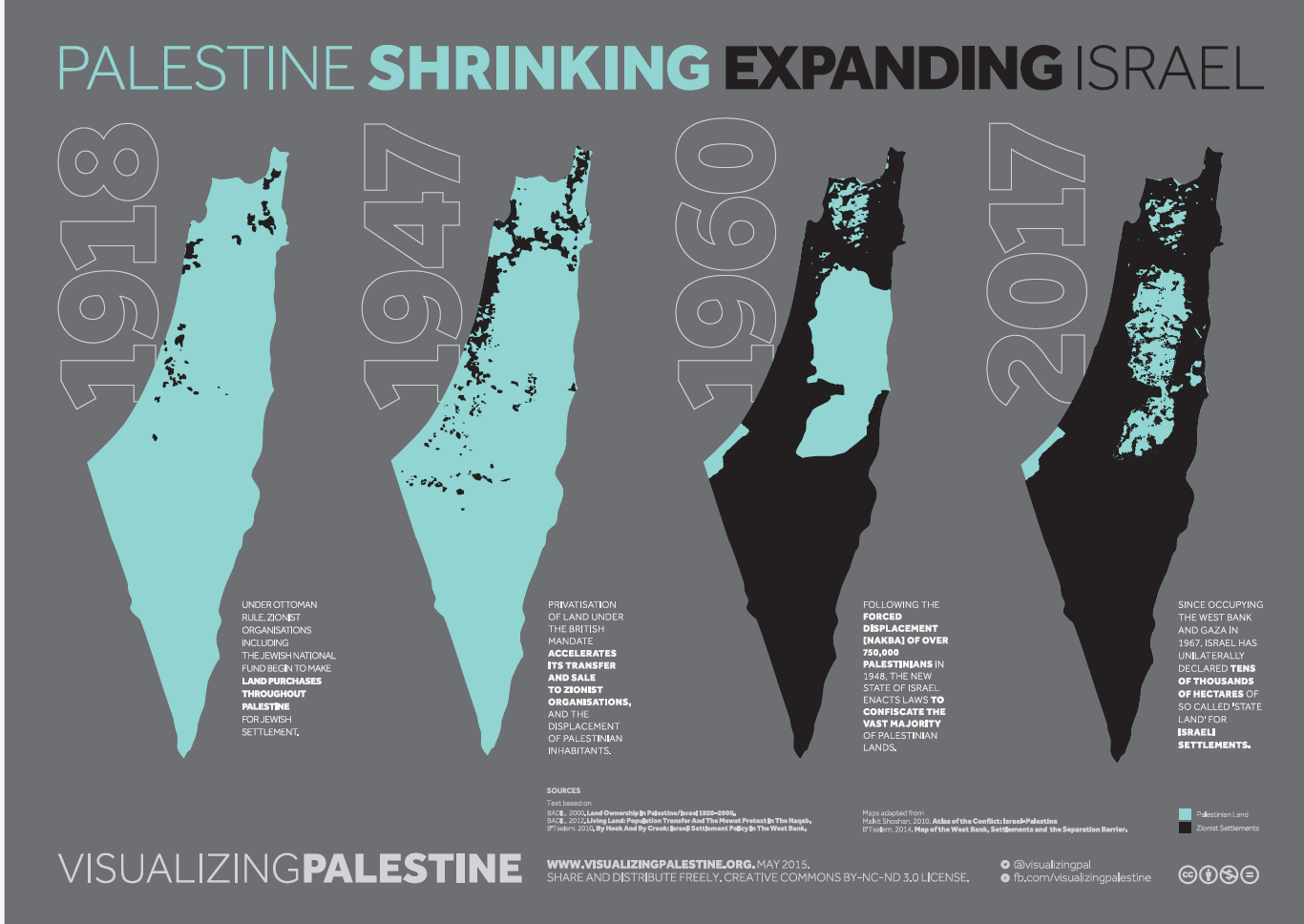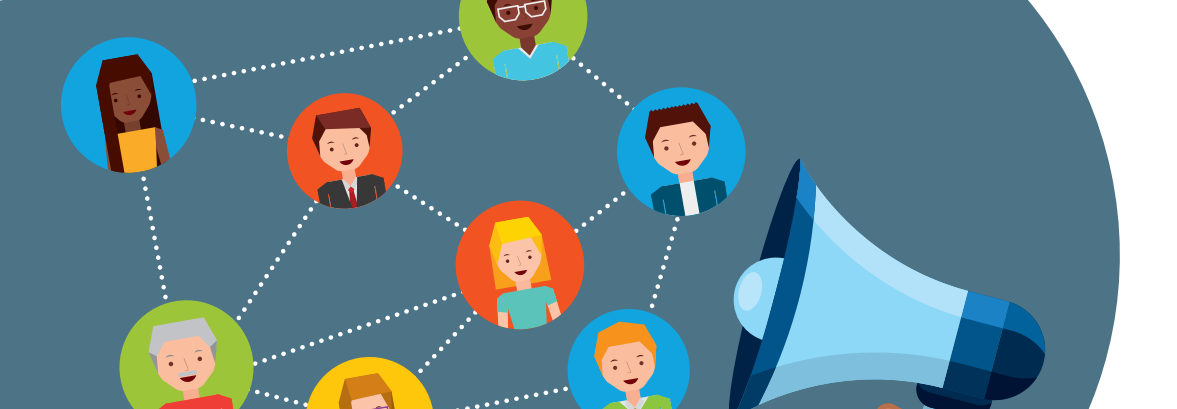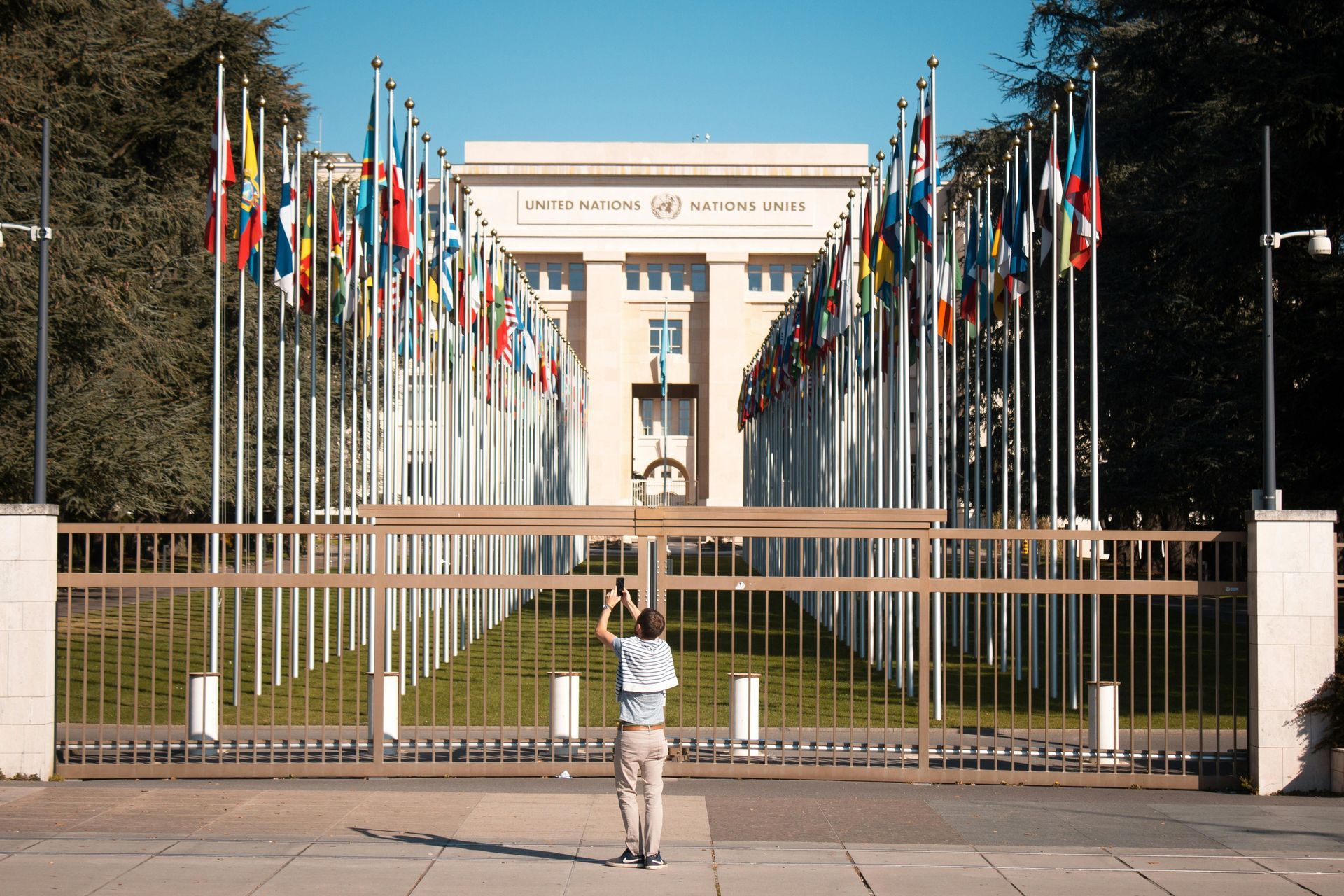IDEA’s Erasmus+ Project Kicks Off in Riga: Strengthening Global Citizenship Education (GCE) in Ireland and Latvia
At the end of March, IDEA staff and representatives from three IDEA members travelled to Riga, Latvia, for a two-day event marking the launch of IDEA’s Erasmus+ project with our partner LAPAS (Latvian Platform for Development Cooperation) focused on the IDEA Code of Good Practice
The project’s core objective is to enhance the quality of global citizenship education (GCE) at local, national and European levels. Central to this work is the creation of a Code of Good Practice for Latvia based on learning from the IDEA Code that will support Latvian GCE practitioners, including teachers, NGOs, youth workers and others, by fostering a common understanding and approach to GCE. This represents the first piloting of the IDEA Code in an international context. The new IDEA task group for the project, made up of Code members, alongside IDEA staff, are supporting LAPAS members to adapt the Code for the Latvian national context by sharing our own experiences and learnings from the Code and GCE in Ireland. The event in Riga was the first in-person gathering of the project, bringing together LAPAS and IDEA members. This face-to-face interaction allowed us to begin the process of knowledge exchange, and mutual learning which will spread the Code’s reach and strengthen our GCE practice.
IDEA was represented in Riga by Dean Oke (CDYS (Cloyne Diocesan Youth Service), Georgina Eastaugh (Concern Worldwide) and Claire Glavey (Global Village), alongside IDEA staff Elaine and Aine.
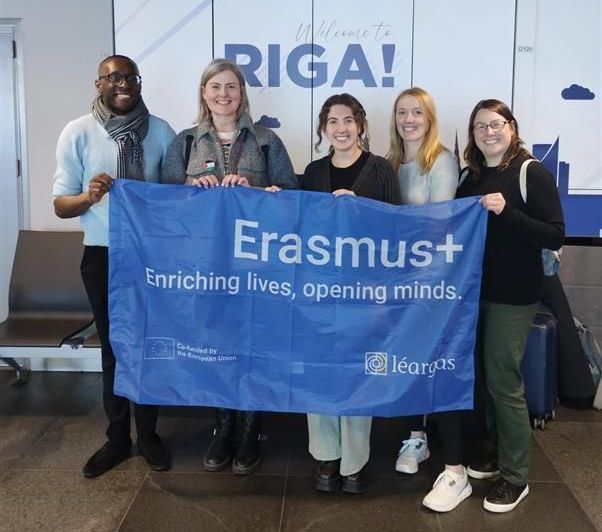
Day 1: A Day of Learning and Sharing around Quality GCE
The first day of the event was dedicated to a training session delivered by the IDEA delegation for LAPAS members and staff. The session began with a deep dive into what GCE mean for LAPAS members in the context of different organisations and education spaces. The conversation covered topics such as Vaness Andreotti’s ‘soft versus critical’ approaches to GCE and discussions on the global and local justice issues that are most pressing for educators in Latvia. IDEA staff Elaine and Aine provided an overview of the IDEA Code of Good Practice as it is applied in Ireland, drawing on the experiences and learnings from the Irish Erasmus+ project task group. This was followed by three insightful case studies from the IDEA members who showed how the Code is applied to their work in practice. It was inspiring and motivating to hear how our members have integrated the Code into their work and to really see its impact on the work of their organisations.
During the afternoon session, the Latvian practitioners applied some of the Principles of the Irish Code of Good Practice to their own work. The rest of the session, which took place in Latvian, provided space for the Latvian members to reflect on their own challenges and aspirations for GCE in Latvia, and to begin the development of their Code. IDEA is excited to continue to support the Latvian members in this process!
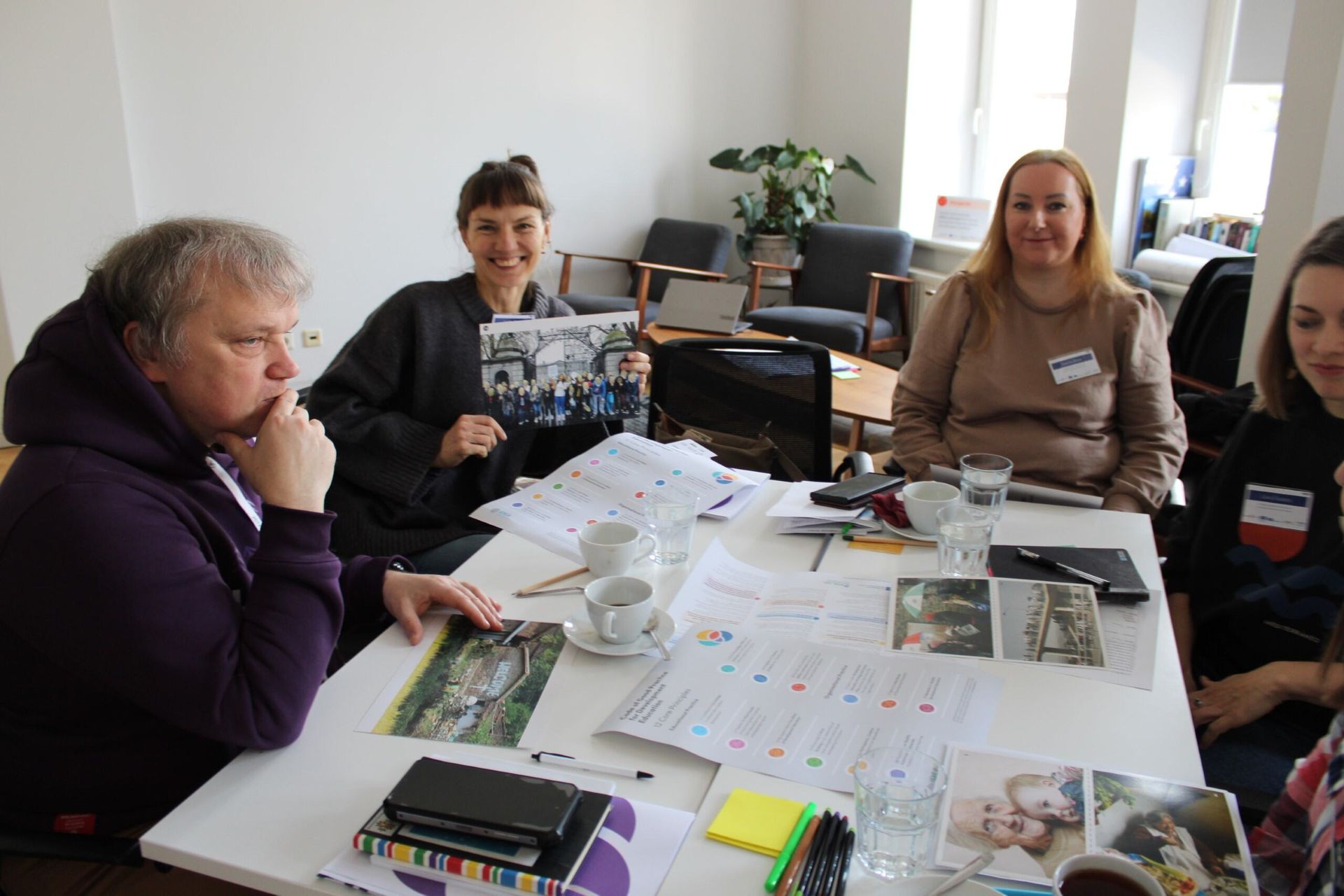
Day 2: Connecting with Government and Grassroots Organisations
Day two began with a meeting with the Latvian Ministry of Education & Science. The Ministry are important actors in GCE in Latvia and some Ministry staff had attended IDEA’s training for LAPAS on the previous day. We were glad to have the opportunity to talk more with them following this. We spoke about the importance of GCE globally and in Ireland, and the IDEA delegation shared their experience of how GCE is integrated in Ireland in formal education, youth work and adult & community education.
The IDEA delegation also had the opportunity to meet with LAPAS member organisation KlubsMaja. KlubsMaja are a dynamic and truly youth-led youth organisation based in Riga. The passionate volunteers from KlubsMaja shared their work with the UN youth delegate programme and their information campaigns for young people in Latvia. Their stories highlighted the important role young people play in education around global justice issues.
The day concluded with a warm welcome from the Irish Ambassador to Latvia, Eimear Friel. We introduced the IDEA Code and our Erasmus+ project with Latvia, and chatted about everything from Irish/Latvian connections to the transformative power of storytelling, literature and libraries.
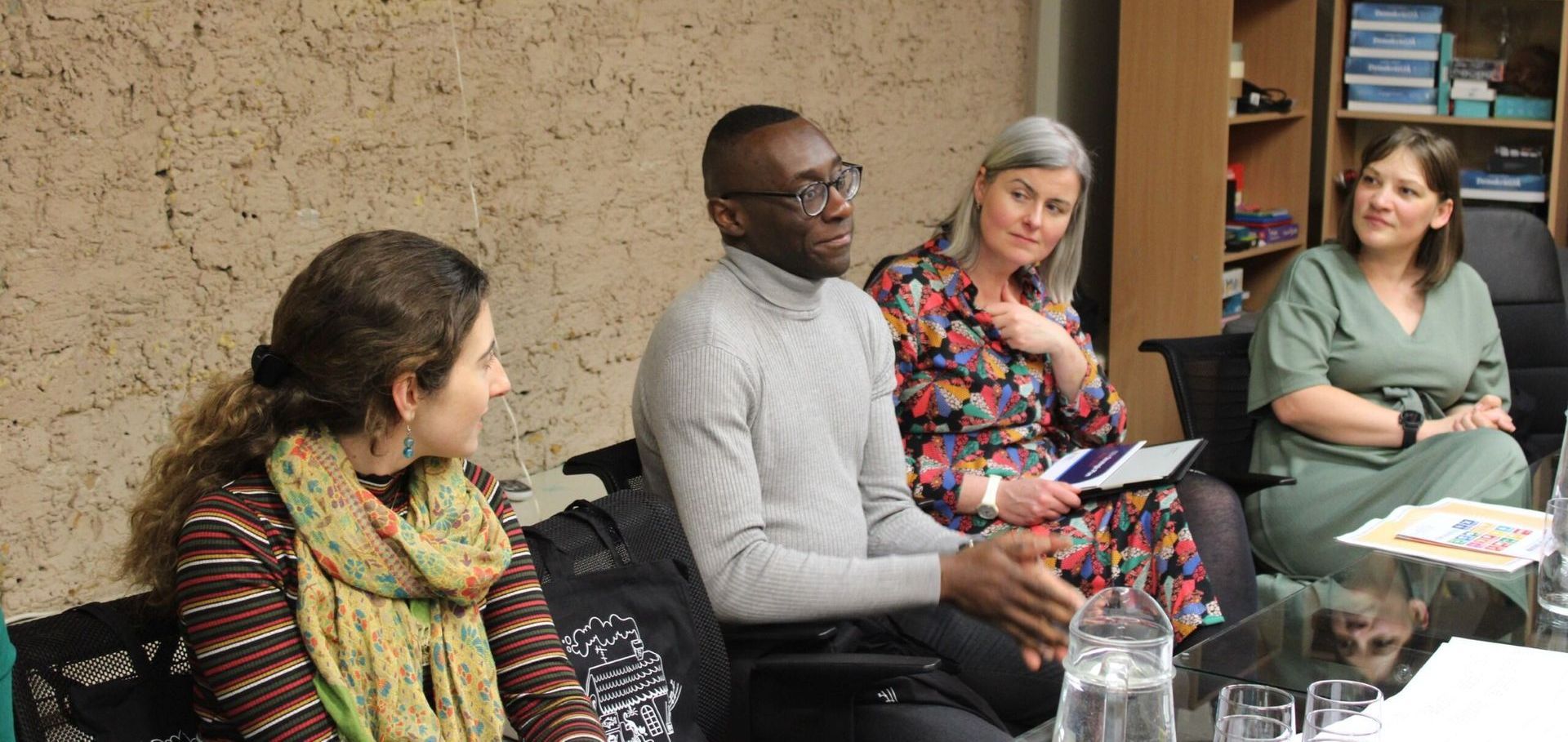
Looking Ahead: The Next Steps in the Project
The next phase of the project will take place in the coming months, where IDEA and LAPAS members will reconnect, both online and in person when the LAPAS delegation join the IDEA Code network meeting in Dublin on 18 June. We will hear updates on the progress of the Code for GCE in Latvia, and IDEA members will share their experiences and support LAPAS members with any challenges or questions they have around the Code. We’re looking forward to learning about the different education and justice contexts in Ireland and Latvia.
On a national level, IDEA’s Erasmus+ task group will develop a visual or video resource on quality, critical GCE to support members in Ireland in introducing the concepts at the centre of quality GCE and the Code to new audiences, be they colleagues, educators, organisations abroad, or members of the public.
As the project progresses, we are excited to continue learning from our peers in Latvia and expanding the reach of quality, critical GCE through the IDEA Code of Good Practice.
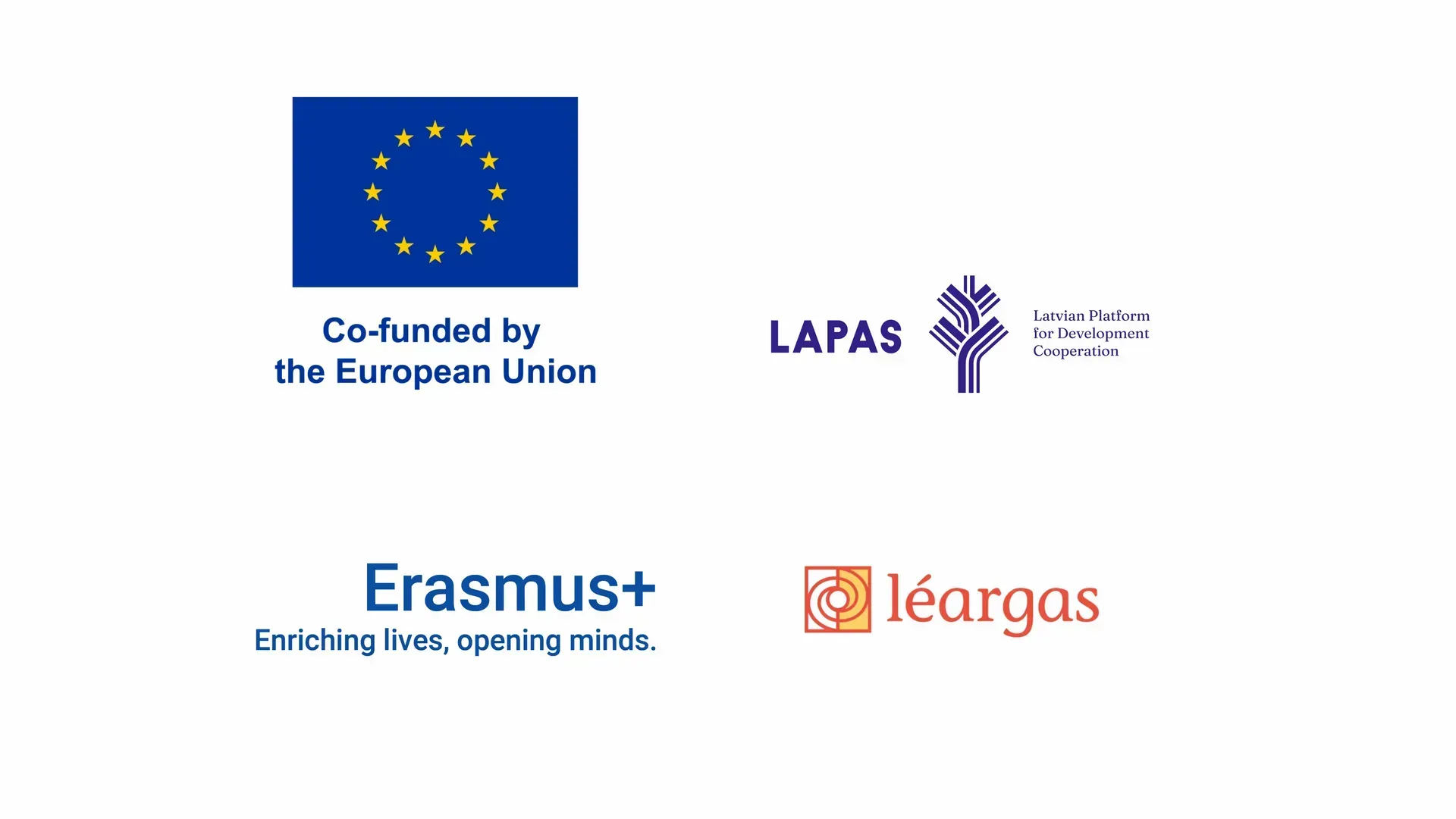
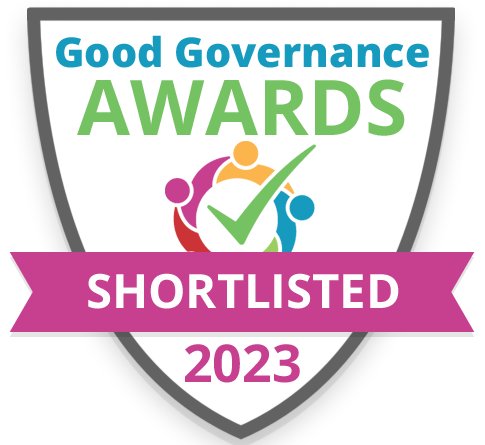
IDEAThe Irish Development Education Association6 Gardiner RowDublin 1D01 Y183
Phone: 01 8788480
© 2023 IDEA Registered in Ireland No. IE435218. Charitable Tax Exemption Number: CHY 16504. Registered Charity Number: 20144517. Privacy Policy Accessibility Statement

